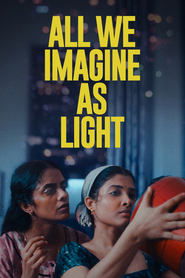A number of truly lovely moments that simply didn't add up to much in this viewer's experience. It's not remotely a facile film, but it's hard to shake the feeling that there is something undemanding in the film's politics: how it feels both like something of a crowd-pleasing affirmation to some,whilst also a futile provocation to the nationalist right. (Seriously, how is anyone surprised that this didn't become India's Oscar submission?)
I did like the use of Emahoy Tsegué-Maryam Guèbrou's piano noodling on when watching the film, but I now understand that it is a little bit of an overused needle-drop in socially-conscious and socially 'active' movies these days. I still admire the opening minutes, though, which leave the viewer with the idea that this film could have elected to tell the story of any number of the internal economic migrants to Mumbai, but just happened to have selected these.
Incidentally, can anyone shed some light on the musical disclaimer at the beginning of the film? I now cannot remember the specifics, but one of the artists that appears on the soundtrack wanted to make it known that they do not endorse its content. From the phrasing, I am led to think it is the sex scene they dislike, rather than the film's class politics or its portrayal of interreligious relationships.
Synopsis: In Mumbai, Nurse Prabha's routine is troubled when she receives an unexpected gift from her estranged husband. Her younger roommate, Anu, tries in vain to find a spot in the city to be intimate with her boyfriend. A trip to a beach town allows them to find a space for their desires to manifest.

